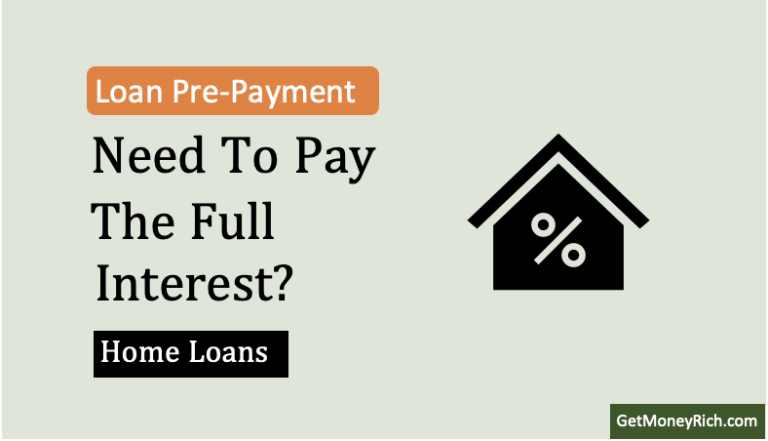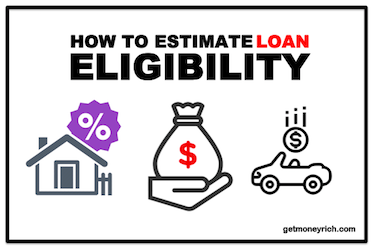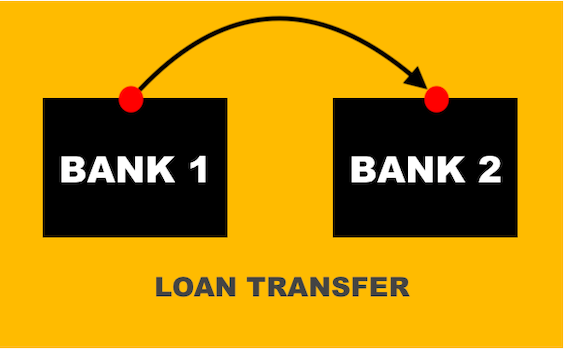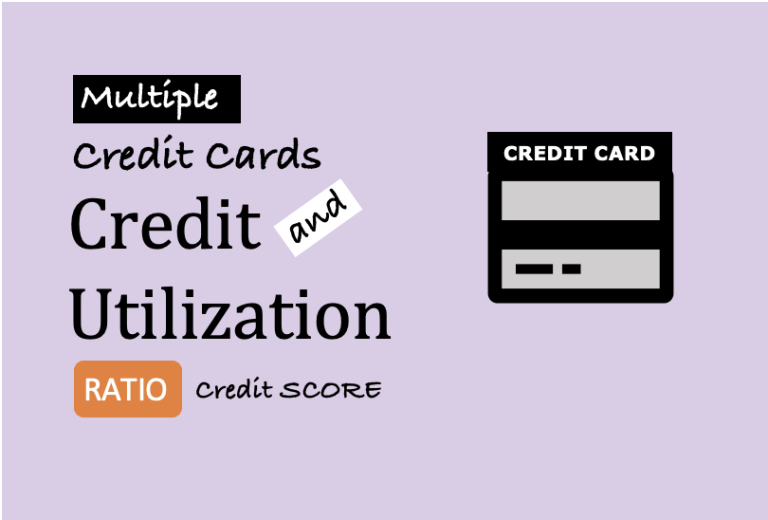The purpose of this blog is to emphasize the necessity of leading a loan-free life. There are moments in life when availing home loan becomes unavoidable. But, is it good to repay the home loan early? In this article, we will read why prepayment of loans cannot be ignored. For quick answers, read the FAQs.
The size of a home loan is usually large. After payment of the EMIs each month, little scope remains for savings. Hence, one must pay off the home loan early. It enables one to ensure more savings each month. The extra money, enhanced savings, can then be allotted to building wealth over time.
From what I’ve learned about personal finance over the past years, financially intelligent people work their way toward attaining financial independence. One of the first steps towards it is becoming debt free. How to become that? By paying off loans through prepayments.
Benefits of Being Loan Free (Quantified)
Some experts on the subject think that paying off a home loan can be avoided. They try to mathematically prove that using the money elsewhere is more beneficial, hence prepayment of a loan becomes avoidable. As the benefit of loan-free life cannot be easily quantified, their calculations might give the impression that loan prepayment is unimportant. But for me, this interpretation has its fallacies.
Regular prepayments will make one loan-free quicker than scheduled. It is a huge milestone. People who preach the ultimate goal of financial independence will appreciate better the importance of this milestone.
Allow me to try and attempt the quantification of the benefits of living a debt-free life.
The cost of debt is not only interest rates that we pay against the loan, there are other adjustments and compromises that we make. I’ve quantified them by loading them with an equivalent interest rate.
Six Quantified Benefits
Interest Rate Savings (8.25%)
- #1. No Interest Payment (8.0%): I’ve assumed an average interest rate of 8% per annum on a home loan in India. A debt-free person will straight away save at least this cost. Please note that a home loan is the cheapest debt. The average interest rate substantially increases if the loan portfolio also consists of other loans. For example, the average interest rates on car and personal loans hover around 11% per annum.
- #2. Lower Cost of Debt (0.25%): Loan-free people will have a better credit score. Moreover, as their credit utilization is also lower, banks will happily offer loans to them at a comparatively lower rate of interest. Here, I’m assuming that the person is taking a loan under emergency and will pay it off quickly.
Income growth & Capital Appreciation (3.5%)
- #3. Extra Savings Income (0.5%): Loan-free people have no EMIs to pay. It means their net cash inflows are substantially higher. If they have more money in their kitty, they are likely to save more. They will maintain a comparatively higher balance in their savings and FD accounts. Hence, they will earn a higher cumulative interest income. I’m assuming an incremental interest income growth of 0.5% per annum.
- #4. Faster Income Increments (1.5%): A dependable and reliable employee, who is also debt-free, works more efficiently for the company. They can work with more focus on the deliverables of their job. Such people are also more fearless. If not treated as per expectations, they can switch jobs finding better alternatives. Hence, these people can expect faster income increments than others. I’m assuming a differential increment of at least 1.5% per annum.
- #5. Higher Return on Investments (1.5%): Investments made in the backdrop of a loan-free personal balance sheet will be more equity-heavy. As the net cash in-flows of debt-free people are higher, they are less likely to sell their holdings. Equity held for a long time generates higher returns. I’m assuming that these people will at least earn an extra differential return of 1.5% per annum on their investments.
In terms of interest rate savings, income growth, and return on investment, a loan-free person saves and makes 11.75% per annum extra.
What does this number tell us? If a loan comes at an 8% interest, its effective cost on our life is more than that. As per our estimates, the actual cost of debt is about 1.47 times the cost of the interest rate at which the loan is taken, 11.75% (=1.47 x 8%).

Video [Hindi]
Deeper Understanding Of Loan
An important question that we are asking in this blog post is, is it good to repay the home loan early? Loans with large EMIs are troublesome. It digs a big hole in one’s wallet each month. The majority of the income gets consumed in paying the EMIs. The bearer of such a loan will dearly like to pay off the loan.
There are two aspects of a loan, good and bad. It makes us buy things that otherwise are beyond our affordability limits. But its downside is that it triggers our bad habit of overspending.
If we’ll see the bigger picture, loans are not good for our financial health. It may make us feel good temporarily, but in a long term, it cost us dearly.
Let’s know more about a few non-typical aspects of loans. Being aware of these characteristics will help one take up loan prepayments with a clearer perspective.
The Cost of the Loan is Higher
We have already seen how the cost of a loan is higher by 1.47 times the interest rate. At a higher loan interest rate, the cost can become even higher than the return from equity. So a bearer of these loans can consider paying them off before using the money elsewhere.
Savings Due to Prepayment is Immediate
Suppose a person has a one-year-old home loan of Rs.50 lakhs, for 20 years at 8% interest. If the person prepays the loan by Rs.10,000, it will immediately save him Rs.35,400 on interest. Assuming that the same money is used to buy an index fund yielding 12% per annum returns. It will take another eleven (11) years for Rs.10,000 to become Rs.35,000. Use this prepayment calculator to estimate savings.
Tax Saving Vs EMI Saving
Suppose a person’s net taxable income, after deductions, is Rs.16 lakhs. The total income tax liability of the person will be approximately Rs.2,92,500. If the person avails of a home loan, he can claim a tax deduction of Rs.2 lakhs under section 24. After claiming the deduction, the income tax liability will reduce by Rs 60,000 (down from Rs.2,92,500 to Rs.2,32,500). We can say that the person will pay Rs.5,000 less tax per month after claiming a tax deduction. Use this income tax calculator
If the person pays off the home loan, he will surely lose on these Rs.5,000 tax savings. But compare it with the EMIs that will go away after the loan becomes zero. An Rs.50 Lakh loan at 8% interest for 20 years will bear an EMI of Rs.41,800 per month. When the loan becomes zero, no EMI will be paid. Compared to this saving, an Rs.5,000 tax compromise looks fair, right?
In this example, the net cash outflow is reduced by Rs.36,800 (=41,800 – 5000) after the loan is paid off. Let’s look at the enhanced saving (Rs.36,800) instead of the loss (Rs.5,000).
Prepayment Limitation
Banks silently try to discourage borrowers from making prepayments. They either impose a penalty or keep a minimum limit on the prepayment amount. These days, RBI does not allow banks to charge a penalty on home loans taken on floating interest rates.
Suppose a person took an Rs.50 lakhs home loan at 8% interest for 20 years. The EMI of this loan will be approximately Rs.41,800 per month. The banks can impose a limit such that prepayments can be made only in multiples of the EMI. It means, on our example loan, the minimum prepayment can be Rs.41,800 or multiples of it. If someone wants to make a prepayment of Rs.40,000, he will not be allowed to do it. He must increase his prepayment amount by Rs.1,800.
Emergency Fund Vs Loan Prepayment
One must not overlook the need to maintain a minimum emergency fund balance. It is critical to repay the home loan early, but more important is the family’s financial security. If one’s emergency fund already has 6 months’ worth of expenses, extra savings can be used to pay the loan. If not, building the emergency fund should take priority.
Pay off Costlier Debt First
If one’s loan portfolio consists of multiple loan accounts, the priority of home loan prepayment will change. A home loan is cheaper debt than a personal loan, auto loan, credit card debt, etc. Paying off these loans before the home loan will be a wiser decision.
Retirement-linked savings Vs Loan Prepayment
In a rush to repay the home loan early, one shall not compromise retirement planning. Retirement-linked savings will come in priority number two after emergency savings. Retirement savings also offer income tax deductions, hence cannot be ignored.
Act As Per Your Type
If you are a defensive investor then repay the home loan early. It will give you more satisfaction. For risk-averse people, safety is more comforting than chasing higher returns. Defensive investors prefer investing in debt funds, bonds, fixed deposits, etc. These debt-linked investments are all taxable. Post-tax returns of debt-linked plans are below 6%-7% per annum. Compare this with a home loan interest rate of ~8%. Also, remember that the actual cost of a loan is much higher (1.45 times).
Conclusion
If you are in doubt about whether to repay the home loan early or not, do not get swayed. Think logically and you will know that being debt free is the right way of leading an independent life. Ideally one shall not fall into the loan trap in the first place, but at times it becomes unavoidable. How to correct it? By paying off the loan as early as possible. Do not just think about monetary gains, the advantage of leading a life without worrying about EMI payments is beyond the scope of mathematics. If you are not convinced, please check how the total cost of a home loan is quantified. A home loan can actually cost us 1.45 times its annual interest rate.
FAQ
There are two ways to pay extra on home loans. First, one can increase the loan EMI. Second, one can make a lump sum payment. In both cases, the effect is the same. It will reduce the loan outstanding balance thereby saving interest. Use this loan calculator to estimate savings upon prepayments.
For people whose debt-to-income ratio is very high, prepayment of loans can improve their credit score. Why? Because their credit utilization will come down. To maintain a good credit score, one must use only 10-20% of their prescribed credit limit. Banks prefer giving loans to people whose income is high and whose credit utilization is low.
There can be multiple ways of doing it. The most preferable one is to pay a lump sum amount regularly. Start and recurring deposit and build savings for the purpose of loan prepayment. Make one prepayment at least once each year. A 20-year home loan will get finished in 14.7 years if a prepayment amount equal to one EMI is made every 6 months. Use this loan calculator to check yourself.
Yes. The long-term benefit of paying off a loan is that it makes one debt free. A debt-free person can then aspire to attain financial independence and subsequently become richer. In short term, regular prepayments can save one substantial amount of money on interest savings. It is also important to realize that the cost of a loan on our life is not only the interest rate but more (1.45x – read here)
Loan prepayment can be avoided in two scenarios. First, when the borrower has not built enough emergency funds. One must have at least 6 months’ worth of income parked as an emergency fund. Second, if the borrower is not contributing enough to retirement-linked saving plans. Diverting one’s savings meant for retirement for loan prepayment shall be avoided. People who are in a final couple of years of loan tenure can also avoid prepayment.
Finding the disadvantages of loan prepayment will require some nitpicking otherwise I see only benefits in it. Here are a few disadvantages. First, using the available cash for prepayment means losing the opportunity to invest for the long term. Second, if the lender has imposed a prepayment penalty, it will lower our savings potential.
I hope you liked this article.
Have a happy investing.






Nice, very informative.
Many of the borrowers never think like that they should read this to know what the things are happening if we act early and in which circumstances, we should have to early pay.
Thank You!
Thanks for the kind words.